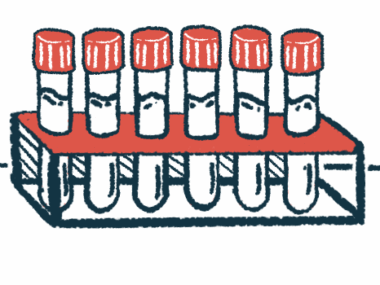Disabled Gremlins Unite: The Story of an SMA Friendship
Written by |

Ever the dry self-deprecator, I send my Chinese New Year column to my dear friend Brianna with a message stating, “I sound like a gremlin here. Which is fine with me.” (Translation: “Yikes, I sound like a terror. I feel embarrassed, but I’m trying to be fine with what I’ve put out into the world.”)
It’s around 2 a.m. in Singapore when Brie replies, or 1 p.m. in Minnesota, where she lives. Being friends with someone on the other side of the world creates a unique style of communication. We often send our messages during our mornings or afternoons, then anticipate a reply the next day. It’s like ladies writing letters in the 1800s, but with technology, as I told Brie once.
“You do and I love it!” she writes, the sunshine to my partly gray skies. “I, too, sound like a gremlin when I’m forced to get up early.”
***
Readers of both our columns won’t be surprised that I’m writing about the friendship Brie and I have. After all, Brie has mentioned our relationship in her column multiple times. It’s only fair to have my turn to wax poetic about it.
For those who aren’t aware, Brie and I met on Facebook. I had written a post to introduce myself to a group and included a little tidbit about how I have SMA. Brie saw the post and left a comment noting that she has SMA, too. She offered for us to chat. I said she could slide into my direct messages anytime, not really expecting her to follow up. After all, it’s the internet. People offer to chat all the time, but they rarely make it happen. But then she did.
From there, we started talking about our struggles with SMA and ableism. Then we discovered our shared love of musicals, fairy tales, and storytelling in different mediums. We were surprised by our similarities, and our mutual goals and dreams of telling our stories and one day living in a better, more accessible world. A couple sentences would become pages of paragraphs. Someone I thought would be a passing stranger became one of my best friends.
Meeting Brie was one of those things that felt like fate. Connecting with her was as easy as drifting down a river — something I can’t say for most of the friendships I’ve made. Part of it was because we both live with SMA, and another part was because we have the same interests. But on the whole, I think it’s because we instantly recognized each other’s innate humanity. It was that recognition that enabled us to be comfortable not just with each other, but with ourselves. It’s a hard quality to find in any relationship; harder still when you have a rare disease that most people can’t relate to.
I didn’t have to worry about what she’d think of my disability. I didn’t have to brace myself to navigate the pity and platitudes that come with explaining what SMA is. I didn’t have to fear that her replies would be infantilizing or awkward, or that she’d perceive me as awkward. I could just be myself.
I could send her rambling messages about my day-to-day. I could vent. I could talk about wanting a job, a place of my own, and a romantic partner, like any adult. I could leave her messages like the one above, when I’m feeling like a gremlin, a terror wreaking havoc on society, and I’d be met with support and a reminder that everything I’m feeling is human. More than that, I’d be reminded that I’m allowed to be human and experience the ups and downs of life without restriction.
This isn’t to say my able-bodied friends didn’t allow me to be myself with them. On the contrary, I’ve had able-bodied friends who’ve pushed me to be who I am today, terror and all. But because we’ve been socialized so differently, it can be difficult to reach a place of true comfort and understanding. In my experience, it’s been much easier to befriend people with disabilities than people who aren’t disabled.
We could simply attribute the ease with which disabled folks build friendships to our unique experiences, a native tongue we’ve developed to converse in. But while that plays a part, I don’t think it’s an entirely accurate assessment. I think that as long as we recognize we’re all human, and all able to experience the same full range of emotions, desires, and fears, we can get to that ease.
I’ll leave you with a quote from Brie herself: “All this to say: Thank God for the people in our lives who see us for who we truly are.”
***
Note: SMA News Today is strictly a news and information website about the disease. It does not provide medical advice, diagnosis, or treatment. This content is not intended to be a substitute for professional medical advice, diagnosis, or treatment. Always seek the advice of your physician or other qualified health provider with any questions you may have regarding a medical condition. Never disregard professional medical advice or delay in seeking it because of something you have read on this website. The opinions expressed in this column are not those of SMA News Today, or its parent company, Bionews, and are intended to spark discussion about issues pertaining to spinal muscular atrophy.







Leave a comment
Fill in the required fields to post. Your email address will not be published.